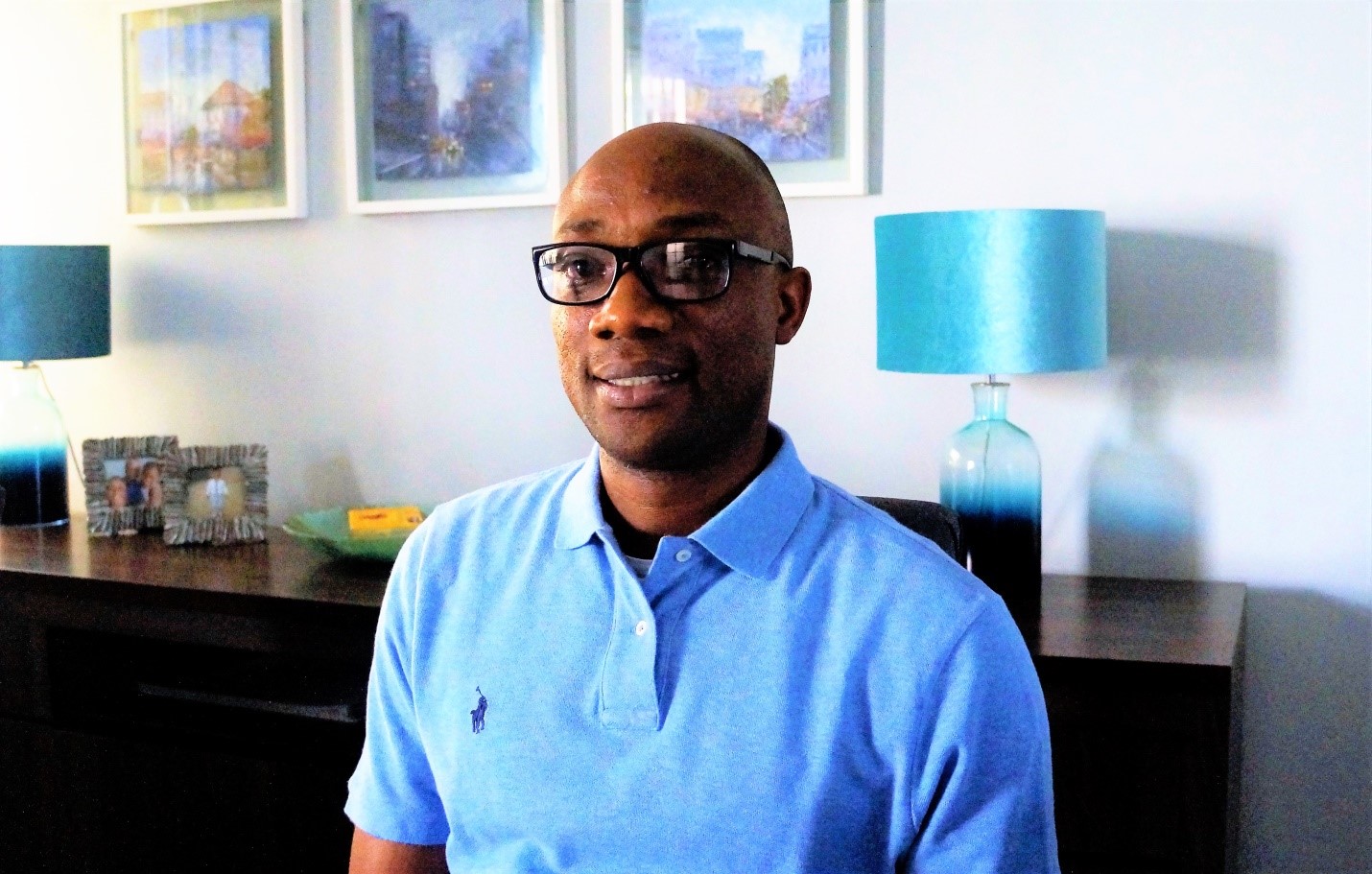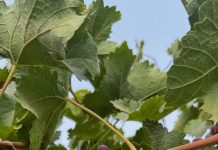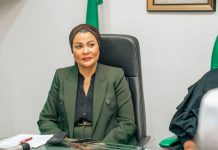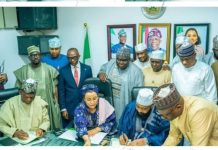In this interview, Adewale Adegoke, the founder of AgroXchange talks about using information technology , drones and geo-mapping to drive crop production and easing access to market for farmers. He also speaks on the role the government must take in order to ensure food security in the country.
What is the unique thing about AgroXchange as a service provider to the farmers in particular and agro allied space as a whole?
The AgroXchange is a geospatial database of farms and farmers that leverages the market penetration of smart devices in Nigeria and the GPS location component of smart phones to facilitate rapid data collection and information dissemination in real-time and near real-time. The main objective of the geospatial database is to reduce the cost of doing business for farmers, aggregators, offtakers, and processors in establishing market linkages. We are bridging the gap of availability of disaggregated farm data, access to markets, commodity trade facilitation and ensuring traceability. AgroXchange is premised on the principle that every farmer is a business entity and demonstrates Orbital Solutions goal to drive insight.
Why use drone in agriculture?
In the terms of use, with our technology that we have deployed, we try to address the critical questions of who is producing what, where are they being produced and how healthy are these products. We try to use technology to answer these critical questions. We try to bring the farmers and the aggregators together. How do we do these? We deploy drones, and these types of drones are multi spectrum drones that use the photosynthesis via infrared technology to monitor the health of the crop. The healthier (greener) crops give out higher infrared via photosynthesis. We use drones to map these farms.
In terms of funding, are you public sector or private sector driven?
As of now, we are strictly a private sector venture, but we are open to talks with the government and also we can engage in public private partnership (PPP) is still open to us. As of today, we are private driven, but we are open to government discussion. We believe that government can create an enabling environment and partner with us. We try to present to the government to use our outcome for the people. We believe that we can work with the government and make Nigerian farmer scale up. We have partnered with flying labs.
You have a series of partnerships, one is Flying Labs, and can we know about this?
Flying labs license, we got it to work in Nigeria, it is an international body that is in charge of drone. This body gives license to operate the drones for either charity purpose or social. We have the license and we are able to apply drone technology and build capacity. We pursued this license to strengthen our capacity for innovation and identify our key prospects. Having such license would expose and introduce one of many benefits. We do get free software; we are introduced to different partners from government to non-governmental organizations. We are also going to be assembling drones in Nigeria. We also intend to build capacity in this area so that youths can start their drone businesses and earn a good living from this.
As a new technology in Nigeria, what do you think that government can do to ensure smooth adaption and take of this technology in agriculture?
The critical thing is that the government has to create an enabling environment. There has to be some policies that would support us, we have agriculture transformation agenda (ATA), but that is not enough! We must ensure that more youths come into the picture. Yes, government is trying , but there should be interventions such as aggregator program, policies and laws. If you look at the aggregator program, it just generates demands and when we have a robust aggregator program in place, People would start seeing agriculture as attractive. But we must know that one person can’t do the mapping in Nigeria. We must start providing drone licenses for people. This is an opportunity for youths to gain employment and these drones in agriculture has the capacity of generating hundreds of thousand jobs for the government and also boost the revenue of the
farmers.
What about the security of deploying drones in the nooks and crannies of country?
There are things we must understand, yes, I totally understand the security perspective but we have organizations like Nigerian Civil Aviation Authority (NCAA) that can give drone licenses to people for strictly farming purposes, there can be collaborations with the ministry of agriculture or interior, ours is to ensure that we have food security and maximum yields using the drone technology to map out arable lands in Nigeria. It would serve as data for planning in the future. We must start looking at this type of technology as a nation and we are here to offer that. We have to open up this drone space. The regulatory bodies must start upping their game here. This is a huge market and more attractive to the youths. We can have requirements such as providing flight logs etc.
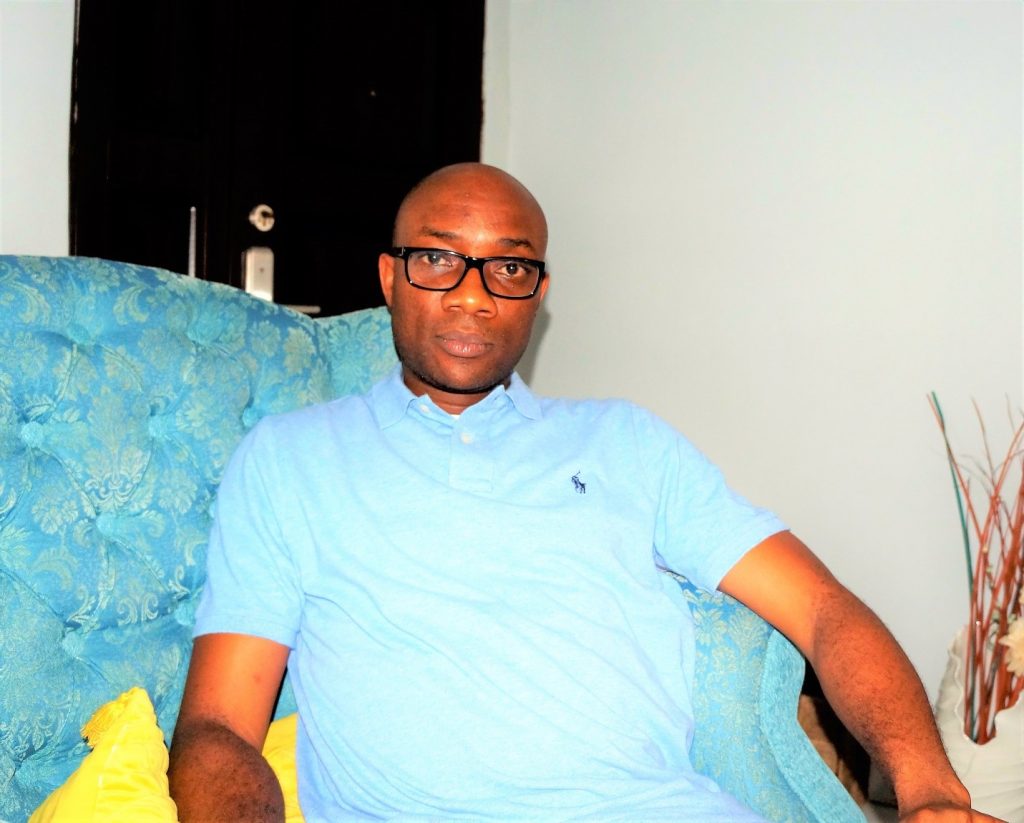
How have you been able to impact on the lives of farmers etc.?
The aggregator program generates demands through mapping, Nigeria is a huge nation and we can train different youths to key into this emerging technology. We are developing artificial intelligence (AI) solution with satellite imaging that would be used to map the farms in Nigeria and this would help in productivity in agriculture. We have developed partnerships that would cascade to the farmers. We are using this to map the farm plots; we are innovating to make the farmers have better yield and access to market. In some cases when we do mapping we collect the names of farmers if government wants to collect land use charges.
So what are collaborations with academic institutions?
Nigerian academic institutions are not serious people, they just want to sit down and write papers, they don’t have the capacity to see the future. We have written to many academic institutions, yet their attitude is lukewarm. We focus on innovation and the academic community ought to be involved here, but unfortunately, they don’t look serious. Though, we have partnered with foreign universities like the one in Minnesota and foreign ones are more serious. I have to be frank here; the Nigerian academics are not serious people. There was a time we wrote a document that is about the alliance for food security in Nigeria, this document is a tripartite one that has the government, private sectors and academic community in it. It should have been a collaborative one, but unfortunately, the academic didn’t come through, they don’t care how the student would benefit. If for us to deliver value we have to partner with institution that recognize value and it seems that Nigerian academics don’t recognize value and we really want to partner with them especially in the agro exchange platform.
Do you facilitate business for farmers and end users such as big firms and ease access to market for these farmers?
Yes, that is why we do mapping, with mapping; clients can see what they want and where they are. We have the database and these are what end users want and for the farmer we have eased their access to market. One of the critical things that affect the income of farmers in Nigeria is value chain and we try to bridge that through partnership. We are profiling over two hundred and seven thousand farmers and we the mapping, clients come to us. It is technology and we don’t hide this.
Are the farmers ready to key into this program considering factors like culture and education?
Well, some are reluctant, they have the mentality that government wants to collect their lands, it takes a lot of efforts to convenience these guys because over time people have gone to these farmers to collect money from them under the auspices of intervention programs yet they don’t and also the government factor. Then politics, the leaders of farmers association are tied to political affiliations. The issues of cultural factors are there. It is much easier in the North than the South. We are currently working in Borno, Akure, Ondo, Gombe, Kaduna Yobe, Jigawa , Kebbi and Sokoto states.
Want are the challenges that you face in this job?
Climate change has been an issue for us here I mean the extremities of weather patterns in the South which is flooding, in the North, high temperature and desertification. Also uptake, uptake can be slow especially when it has to do with government and donors due to interest. This mitigates the swift deployments and it creates a barrier for us. The educational attainment of small holders’ farmers is a challenge because they don’t understand IT and how it works and that is why we work with aggregators. Security is not much of a problem. We are used to it.
We are moving into 2020. What would be your contribution to agro allied sector?
We are looking at data as a service to those that are interested in our data, commodities trading and also strengthen our partnerships. We hope to increase the income of farmers by partnerships with aggregators and research institutions.



